Hello and welcome to Episode 23 of What China Wants, fresh on the heals of China’s National Party Congress - one of the most important events in the global calendar these days.
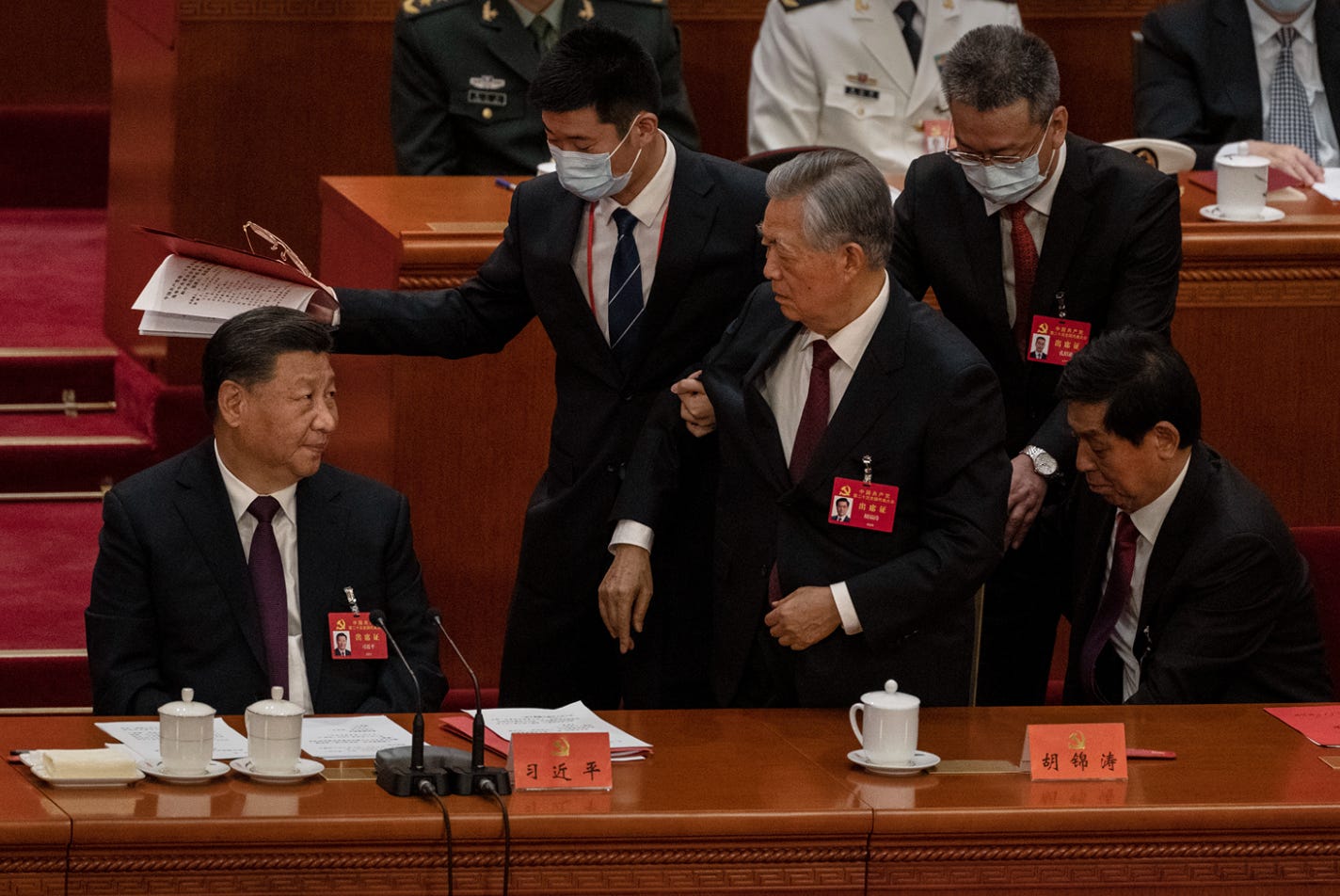
Worldwide attention on the National Congress might have focused on what happened to former leader Hu Jintao, but there was of course far more to it than that. And it is worth digging into given China’s role on the global stage.
To do so we interview China politics watcher Joseph Torigian.
Some highlights from our discussion:
There is a strong signal that stability and security are still number one priorities. The new leadership are mainly yes-men to Xi, and this is a reflection on his concentration of power.
Economics might be subservient to politics for Xi, but this doesn’t mean he doesn’t care about economics. For instance, he emphasised China’s development and the role that China can play in global development.
There is no new urgency about doing anything about Taiwan. But there is a thought that achieving “President for life” status might add pressure on Xi Jinping to prove himself, which might have an impact on the timing for any action - although we cannot be certain on this.
We debate what happened to Hu Jintao.
Overall there aren’t any real surprises from Congress. We can though expect more changes in the years ahead.
You can also listen to the podcast on Apple, Amazon, or Spotify.
As always please do share, comment, and subscribe. We’ll be back soon with more What China Wants, reporting on the economic implications of the Congress with friend of the show George Magnus.
Many thanks for listening.
***
Here is the transcript:
Sam Olsen: Hello, and welcome back to What China Wants with me, Sam Olsen, and Stewart Paterson. Sadly, Stewart can't make it today, which is a real pity because we've got a fantastic show coming up. We are talking to Assistant Professor Joseph Torigian on the Chinese National Party Congress, which has just finished. So Joseph, welcome.
Joseph Torigian: Thanks for having me.
SO: Now you are at the American University in DC, right?
JT: That's correct, at the School of International Service.
SO: You study the politics of authoritarian regimes with a specific focus on elite power struggles, civil military relations, and grand strategy. The reason we really wanted to get you on today is because you wrote a book recently called "Prestige, Manipulation and Coercion: Elite Power Struggles in the Soviet Union and China after Stalin and Mao". And if there is one thing that the Party Congress is, is a struggle between the elites. In fact, I think you're also about to publish a book on Xi Jinping's father Xi Zhongxun, right?
JT: I do have a contract with Stanford University Press. That is a biography of Xi Jinping's father. It won't be coming out super soon, but thanks for flagging it.
SO: No worries. But anyway, let's get onto the Congress. So first of all, was the Congress - which has just finished if you're listening to this in the future - everything you were expecting, or was it full of any interesting surprises?
JT: There was not anything especially surprising in the Political Report. Xi Jinping, when he talks about what he's doing, has tended to emphasise continuity with the past. And when he makes changes, they're gradual. And ultimately, the Xi Jinping that we have is the Xi Jinping that we've already had for several years. So, the fact that there weren't any really sudden shocking pronouncements in the Political Report, and he continued to name these multiple goals that he pursues at the same time and sort of manoeuvres among flexibly as situations change. I didn't see anything there that I hadn't ever seen before.
The bigger question, of course, was what the new leadership line-up was going to be. And it was hard for me to be surprised because I didn't have a clear idea in my mind of whom he was going to pick. The reasons for that were, first of all, this is a process that has a lot of contingency. It's a process that has a lot to do with personalities, and chemistry, who gets along with each other, who can properly intuit what the top leader is thinking. But also, it wasn't clear what kind of signals Xi Jinping would have wanted to show by the new leadership that he picked, whether he wanted to emphasise continuity, or to show that he only picked people that were close to him, or that he wanted to emphasise a particular set of skills.
All of these things were not exactly clear before the Congress, and they're not exactly clear, crystal clear now, though, people are trying to figure out what exactly these changes mean.
SO: So I suppose one of the questions that people are asking is, is Xi Jinping now ruler for life? Or is it just until the next party congress in 2027, that he's definitely going to be in power?
JT: Well Xi Jinping is relatively young, so he doesn't need to start thinking about the succession immediately. At the same time, as someone that at least I believe really is dedicated to the Party, he understands just how dangerous succession politics can be - and destabilising if the Party is brought through a struggle that can spill out and cause real instability for the People's Republic of China. So presumably, he is at least starting to think about a way of handing off power at some point in a way that allows the Party to persist.
But this for him, looking back at the history of succession politics, it is really hard to get right. And it's hard to get right for lots of reasons. One is, as I mentioned before, a lot of this has to do with personality, whether or not someone can win his trust. But it also challenges his view of the Party as only functioning when you have a core with one single decision maker. So as soon as you nominate someone as a potential successor, or start giving them lots of power, it has the possibility that people will start to wonder whether or not there are two headquarters, whether there are two centres of power within the Party. And everything we know about Xi Jinping suggests that he would think that state of affairs would be a disaster.
SO: So, in other words, he's not going to truck any competition through any nominated successor anytime soon. I wonder what this means for the elephant in the room, namely the countdown to potential action in Taiwan? There are a lot of people, including one of our guests recently, a Chinese professor, who are saying that Xi really has to do something big to justify his extension of rule before the 2027 Congress. Otherwise people might put pressure on him to say, "Why have we allowed you this continuation of rule when others haven't been?"
Do you think that the fact that he has been made President 'for life' is actually adding more pressure on him, and that this Congress is making him have to prove himself over the next five years?
JT: I have also heard this idea that Xi Jinping is actually now more vulnerable, because everything that goes wrong will be attributed to him alone, because he's now surrounded with yes-men. I think that the more likely story is that Chinese politics have never been a popularity contest. And when you're surrounded by yes-men, it's probably even less of a popularity contest, and that there isn't a real trigger within the Chinese Communist Party that would allow people who disagree with Xi Jinping, or think that he's demonstrated incompetence, to do anything about it. Certainly, it's more useful to be popular than not, but I would question this idea that Chinese politics has ever been about policy or policy differences. We do not even know whether people disagree with Xi Jinping all that much.
But also, I want to say on the Taiwan issue, when we look at the latest Political Report, we do not see any new language about a sense of urgency. Broadly speaking, when it comes to the Taiwan issue, I think Xi Jinping has two cross-cutting mechanisms going on at the same time. One is that it's a really emotional topic for him, and that I'm sure there's nothing that he would like better to add to his legacy than reunification. At the same time, I think that the last thing he wants to do is to make a decision that's so dangerous, that it puts the CCP’s position in danger, which is what a war with Taiwan could do.
So to the extent that people in Zhongnanhai can tell themselves a story that time is on their side, I don't think that they feel a need to take a big risk, with a very important caveat that if there is a sense that Taiwan is moving in the wrong direction, especially because of actions that the United States take, that they will demonstrate their unhappiness, including in very dangerous ways.

SO: You just said a little bit of jargon there. For those people here who don't necessarily know what Zhongnanhai means, the British equivalent would be Whitehall or Number 10. It's sort of an amalgam of both. Would you say that the equivalence in America is 'on the Hill', or would you say 'in the Administration', which one do you think is more relevant?
JT: Yes, that's a good question. The politics in the United States and China are so different, it would be hard for me to think about just exactly what the equivalent of Zhongnanhai is, in the sense that in China, when they talk about the advantages of their system, they say that one of the reasons they are allegedly more effective than the United States is they don't have three governments, which of course, they mean, the three branches of power. So I'd have to think about that.
SO: Yes, well, in fact, one of the things that we've been thinking very hard about on this podcast and the associated newsletter, over the years is how to translate purely Chinese concepts into Western speak. And in the context of 'President' in the American and the French, etc. perspective, that doesn't sit easily on what Xi Jinping actually is. I was having a debate on Twitter the other day with a China watcher, and we were talking about the fact that there is no real option but to use the word 'President' for Xi Jinping because it's very hard to translate his exact title into something meaningful to a Western audience.
On a related note, one of the things that you and I are discussing is what the Party Congress actually means, and it's very difficult when the power structures that create it are so different to those in the West. Not only that, but the way it pans out is also different. In fact the question on many people's tongues is, what on earth happened to Hu?
JT: Right, so you're referring to that rather dramatic scene from the Party Congress, where Hu Jintao (who is, of course, Xi Jinping's predecessor) was ushered off the stage. It has been interpreted by many on Twitter as a rather ostentatious purge. I have a few things to say about that. The first is that outsiders have a terrible track record of correctly interpreting events like this, and that 99% of my answer as people understand it should be that 'nobody knows and I don't know'. But I'm a little bit sceptical of the purge reason for several reasons.
When I come at something like this, I can look at what's publicly available, and I can ask what makes sense. In terms of what makes sense Hu Jintao was someone who grew up in the Party. You talk about differences between how people think about politics in China and outside of China, one thing that's hard, I think for people to understand is the extent to which people put the Party's interests first. Even when you disagree with the Party, the Party, still, is something to which you have dedicated your life. Almost always, it's inconceivable that you would contradict the top leader, especially in a moment where all the choreography is intended to demonstrate stability. So, the idea that Hu Jintao was going to cause trouble would challenge my understanding of him as a person, and how this type of system has tended to work? Because Hu Jintao would know that even if he did try to do something to challenge what Xi Jinping was doing, it would only make things worse.
Also, I don't see as much of a difference between Xi Jinping and Hu Jintao as other people do, which suggests that Xi Jinping would not feel this need to purge him in such a dramatic way. So Xi Jinping has certainly been described by many people as rejecting what Hu Jintao's tenure represented. I think that is an overstatement for lots of reasons. Most importantly, Xi Jinping's own legitimation narrative is not that he's rejecting 'reform and opening' and the policies of his predecessors, it's that he's saving them by being tougher, by bringing new discipline to the Party and instituting this system where there is a core that very clearly get things done. And Hu Jintao really helped Xi Jinping in the sense that in 2012, during that succession, he did not stick around; he allowed Xi Jinping to come to power, and there was a relatively stable succession. So for these reasons, all we can say is 'I don't know', but I think that perhaps at least for me, a likely explanation is that he wasn't feeling well.
SO: See, I am not so sure about that. I think that the body language of the delegates around Hu was not that of people that were concerned for his health. I think that given the fact that no one helped him – and, indeed, the ideological enforcer Wang Huning stopped one of his colleagues from helping – doesn’t look like Hu was taken ill. For me, I personally think it is more likely that this was something that was done on purpose.
Not necessarily to humiliate him as an individual, but given the replacements on the Standing Committee, and the obvious sort of aggregation of power around Xi, I think that there is perhaps the chance that it was done as a stunt to really reinforce Xi's control of the Party. Especially since it was done in view of the cameras, I just find it hard to believe that an old man, who we have known for a while is frail, would be ushered off in such - I hesitate to use the word 'brutal' - but perhaps an overt manner. But maybe, you are right, maybe it was just that he was taken ill and needed to be taken out of there. And the point is, we will probably never know. That's another thing about the CCP and the Congress, is that so much of it is opaque.
But just going back to things that we can sort of understand a bit more, what's your reading from the Congress on the future direction of China internally? Are we looking at a continuation of the last few years? Or is there anything in there, which looks at radical domestic agenda to come?
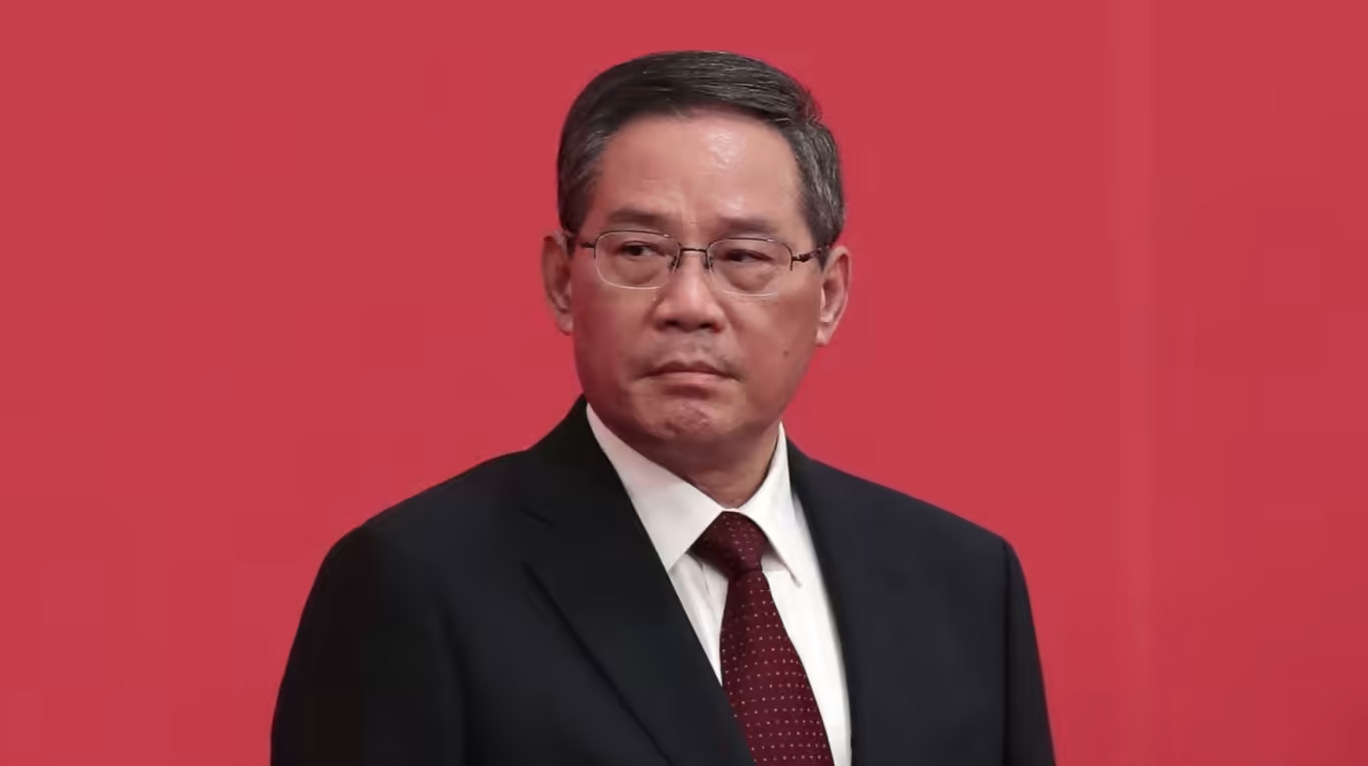
JT: Well, as I was saying earlier, I think that the Xi Jinping that we have now is the same Xi Jinping that we have had over the last several years. What we see in the Political Report are multiple different goals. Right. One of the things that I have been struck by on Twitter is that people have sort of essentialised Xi Jinping as a particular type of person saying that he only cares about national security, he has rejected 'reform and opening'.
Certainly I think that there has been a shift in priorities and that Xi Jinping worries about the externalities that 'reform and opening' have created for Chinese stability and he is explicit about them. But I do not think that he doesn't care about economic growth at all, either. In fact, when you look at the remarks that he made when he introduced the new line-up, he said that "Chinese development cannot leave the world, the world's development needs China, the Great Gate of China's openness will only open wider and wider." So this, I think, hints at a signal that as much as he puts security in the number one priority, he is still going to care about certain things that he and his predecessors have cared about, as well.
Ultimately, I think he's a politician, and that he is going to manoeuvre among multiple different goals at once. So of course, we saw 'common prosperity' mentioned in the political report and we saw certain intellectuals during the time of the Congress talk about what that might mean, especially in terms of capital gains tax, real estate tax. The Political Report also discussed the regulation of the accumulation of wealth, and my assumption is that these are real goals of the leadership. Then the big question will be whether they will be pursued in a way that is more or less destabilising, and whether or not those changes will be done through a process of quiet and deliberate thought.
Some people have suggested that because Xi Jinping is surrounded by yes-men (and I'm saying men deliberately, because there are no longer any women there, even in the Politburo) that that deliberation won't happen, because everyone will be so eager to please Xi Jinping. The new premier has never had a national level of portfolio, which has also raised questions about his experience. Li Qiang has been described as a person who can still get promoted, even though they're incompetent because of his association with zero COVID in Shanghai. So, the question becomes, why would Xi Jinping hire someone like that?
Well, one possibility is that he actually is impressed with Li Qiang's capabilities and other than zero COVID, my own understanding is that many Western business people and Chinese business people actually quite liked him and thought that he was attentive to their interests. It may also be the case that because Xi Jinping trusts Li Qiang so much that Li Qiang is willing to raise his mind when he thinks that Xi Jinping needs to know something. Of course, he would pick his battles, certainly, and would never openly contest Xi Jinping. But these are things that we just don't know, and we will have to watch as time goes on.
SO: Yes, you raise a good point about Li Qiang, we do not know much about him. I think it's been said a few times on this podcast, it's hard to look at exactly what's going to happen domestically when we do not really know much about these people to begin with, over the next five years. Also, many of the policy announcements that have happened that have really changed China's history under Xi Jinping have not happened at Congress, but have happened in the year subsequent to those, so you are right on that, I suppose.
The thing that investors and policymakers that listen to this show and the others who listen just of interest would perhaps find useful to know in your opinion is, to what degree does the rest of the elite feel that this is a good thing? Is it ever possible for us to know that, or do we just have to assume that we won't know the degree to which the Chinese elite has welcomed this or not?
JT: Looking to history, which is what I do professionally, it is striking the extent to which most of the time policy differences among the leadership do not tend to be fundamental. But even more importantly, they don't tend to have the habit of either sparking elite power struggles, or the contents of those differences, resolving a particular power struggle. So even if people did disagree with Xi Jinping, I do not think that they likely would be able to do very much about it.
I think that this has to do with the very nature of the Leninist system, which was created to be an organisational weapon. The idea is that this is not a Party where people come together to work together out of free will, to deliberate openly, and then act in concert. You have a democratic centralism, which is supervised by a core leader, and he is able to identify problems and resolve them without having to worry about whether or not he is well-liked.
So in that sense, we can only look to history. But also, I think that it's at least likely that many people agree with his idea that you cannot have economic development if you do not have security. Second, that they agree that the United States sees in China an inherent threat because China is a communist country and cannot accept the rise of another superpower that subscribes to a different ideology. It is possible that many people are worried about the kind of instability that would occur if they move away from zero COVID. So just to summarise, first of all, we don't know. And second, it probably wouldn't matter to the extent that there are people who disagree with Xi Jinping.
SO: Fair point. On foreign policy, is there anything you have seen in the in the Congress announcements to indicate a shift in foreign policy?
JT: I think that after the Congress, Xi Jinping will certainly have more bandwidth to think about foreign policy. The most striking change in the context of broad continuity, but it is a difference, there is a formulation of the nature of the international environment. For your listeners who do not follow Chinese politics too closely, this is sort of a very high-level ideological estimation of just how dangerous the world is at a particular time.
Deng Xiaoping, after a very gradual several year process after the Cultural Revolution, decided that China was in a period of 'strategic opportunity', which meant that they didn't need to put too many resources into the military, and that they could open themselves up economically and focus on development because war was not inevitable or coming anytime soon. And this Political Report says that 'opportunities and challenges are both present' So it raises the sense of crisis to a new level. Certainly there is a legitimation narrative part going on here, to say that we need a tough helmsman like Xi Jinping precisely because the world is changing.
I think that China was very attentive to how the United States was responding to the brutal Russian invasion of Ukraine. But ultimately, we'll probably continue to see this wolf warrior diplomacy, periods of tension followed by periods where China will see whether or not they can improve relations to their advantage. The final thing I'll say is it's striking that on the list of objectives, as identified by the 20th Party Congress report, the seventh out of seven tasks is "further increasing China's international standing and influence". So they will still have a lot to worry about at home, even though I'm sure they will continue to become more ambitious on the international arena as well.
SO: Okay, so any other points that you think that our listeners should be interested in, or worried about, or optimistic about, in terms of the outcomes from this Congress?
JT: Well, one interesting thing to keep in mind is that, even rumours or wrong assessments about the Congress can very often have real implications. Well, of course, we don't know what happened with Hu Jintao, but we certainly have an interpretation of what happened to Hu Jintao, and that is shifting how people think about China. But also, we've seen that the conclusion of at least the business community, looking at this Congress, including the new line-up, have concluded that it's not going to be business friendly. So, I think that's another thing to keep in mind, even if certain things are not clear, for some people they are and it has real world implications as well.
SO: We'll be back very soon with an interview with the economist George Magnus to talk about the financial and economic implications of the Congress. Stewart will be back for that, so hold fire for that one. But in terms of in terms of your overall view of the Congress and its impact on the world, what do you think - are we still too early to tell, or do you think that it has really shifted the political geography of the next five years?
JT: In some ways I don't think the Congress matters a lot, because even before Xi Jinping' big coronation at the 20th Party Congress, he had been powerful for many years, and he had been signalling what he wants for many years. So if he's more powerful after this Congress, I'm not quite sure how much that 'more' matters. One thing that I think is significant is, as we saw over 2022, people were wondering whether there was any difference between the policies of Xi Jinping, the top leader, and Li Keqiang, the premier. Now that this new Premier Li Qiang is unambiguously seen as an acolyte of Xi Jinping, I think it's less likely that people will come to that kind of conclusion. So, the likelihood of people teasing out differences among the elite, thinking that Xi Jinping is vulnerable, as many people did before 2022. That kind of narrative probably will become less common.
As I said, Xi Jinping will have more bandwidth for other issues. But then finally, the biggest question is whether or not Xi Jinping himself will change. Mao changed quite dramatically over the years that he was in power, and part of that was because he was so dominant for so long. Xi Jinping has made mistakes, but he certainly has not made any mistakes as big as the ones that Mao had, in the form of the Great Leap Forward or the Cultural Revolution, and he hasn't made decisions quite as destabilising as many of the ones that Deng Xiaoping did either. So we will have to see what the future holds.
SO: Well, thanks very much Joseph, we will get you back on for sure to talk about your book, because I think there is a lot of people that are going to have interest in the jostling for elite power within China, and particularly Russia now, looking at what's happening in Ukraine, and its relationship with the West.
But in the meantime, thanks so much for your analysis on the Congress, and we'll be back with more What China Wants very soon. Thanks, goodbye.
JT: Thank you very much. I enjoyed the conversation.






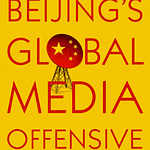
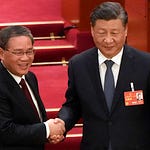
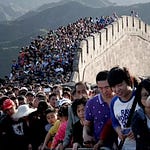
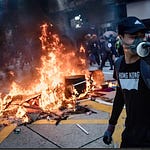


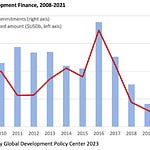
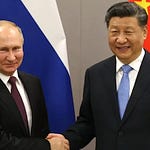
Episode 23: What China's National Party Congress Means for the World